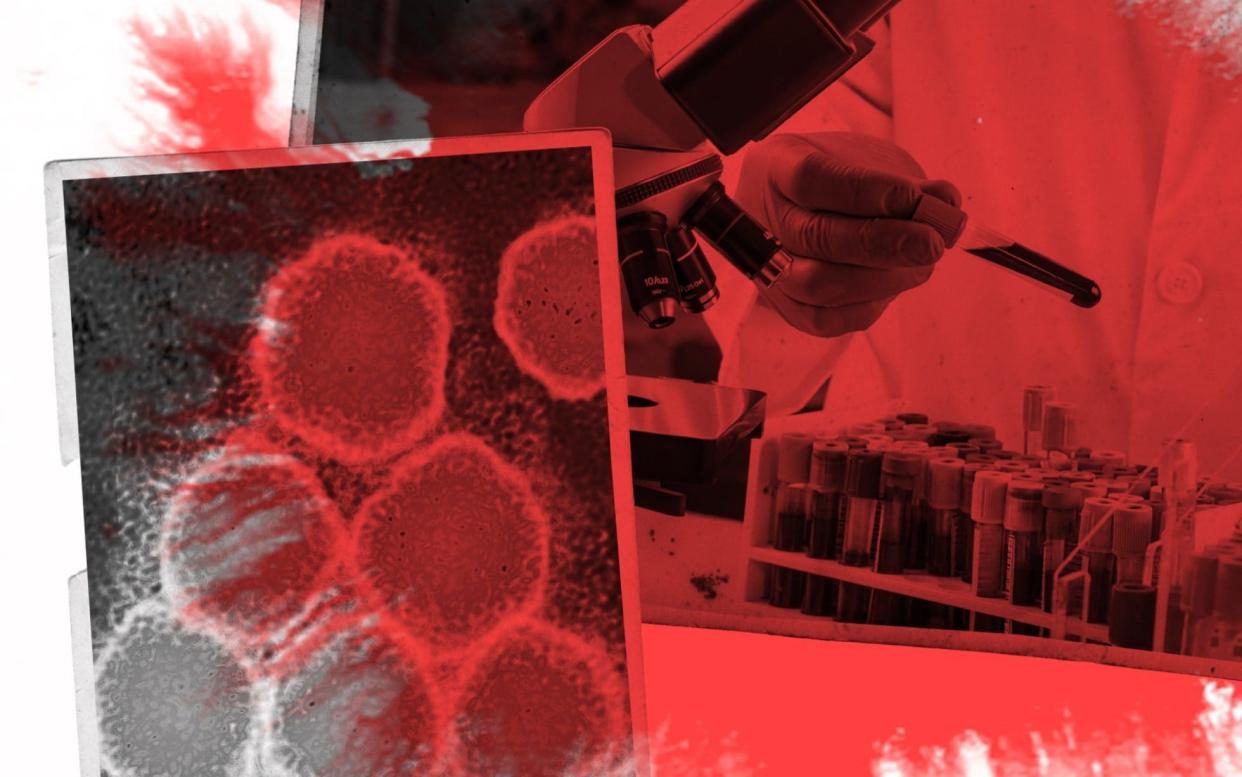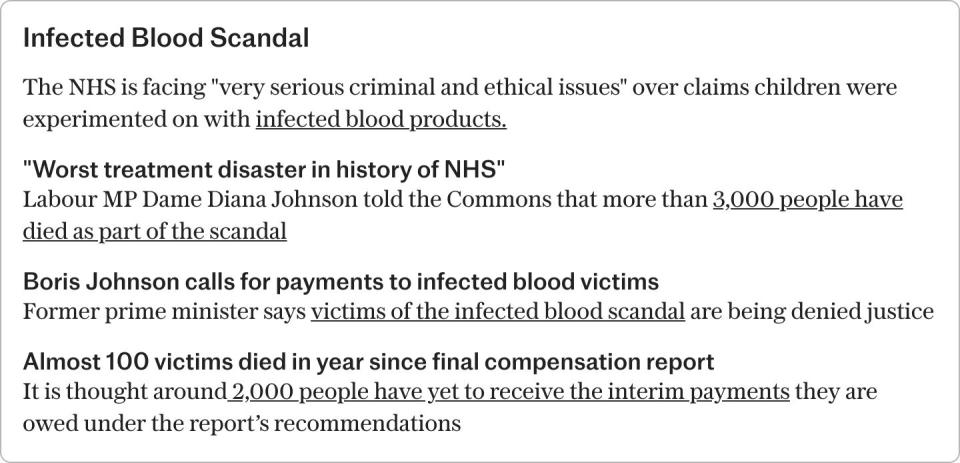Infected blood company’s cost-cutting caused deadly polio epidemic

A US laboratory that killed 10 children and gave 40,000 people polio went on to sell infected blood products to the NHS in what has been branded a “failure of governance”.
Cutter Laboratories was responsible for infecting haemophiliacs with HIV and hepatitis C through contaminated doses of the drug Factor VIII in the 1970s and 1980s.
The California-based company previously made a faulty polio jab that caused an epidemic of man-made cases in the US in the 1950s – a scandal that came to be known as the “Cutter Incident”.
Pharmaceutical companies, including Bayer which now owns Cutter, are expected to be criticised in the final report of the Infected Blood Inquiry’s final report, which will be published on May 20.
Around 1,250 people caught HIV from infected blood products supplied from US pharmaceutical firms and sold to the NHS.
The notorious “Cutter Incident” occurred when the family-run company was one of five given the task of making and stockpiling the first ever polio jab in the US as it went through clinical trials.
Its faulty manufacturing system and cost-cutting measures were responsible for paralysing more than 150 people and the debacle has been credited as a major driver of anti-vax sentiment.
However, despite the scandal, Cutter Labs continued to operate and went on to produce the contaminated blood product Factor VIII which was sold to the NHS.
The drug was made from the blood plasma of people who were paid to give blood, who were often high-risk groups such as gay men, sex workers, drug addicts and the homeless.
The NHS purchased the tainted blood products because the UK was not self-sufficient in blood product supply and the US products were cheaper.
Cutter’s Factor VIII, as well as that of other manufacturers, was to blame for more than 1,250 haemophiliacs in the UK contracting HIV, and around 5,000 people contracting hepatitis C.
Around 3,000 people in the UK have died as a result and the death toll of the biggest treatment disaster in NHS history continues to grow.
Dr Gareth Millward, a historian of medicine at The University of Southern Denmark, has written books on vaccination in the 20th century and said it is “a failure of governance” that the scandal-mired firm would be able to commit a second medical atrocity.
“Cutter had bought the licence to manufacture Salk’s polio vaccine (developed at the University of Michigan), but they didn’t put enough care into the process,” he told The Telegraph.
“The most obvious explanation appears to be cost-cutting, and the result was a contaminated batch that didn’t properly inactivate the virus, so children were injected with live virus – which hurt not just those children, but also caused small outbreaks from those children.”
Cutter was a family-owned business when the polio incident occurred, run by Robert Cutter, the son of founder Edward Cutter, who incorporated the business in 1897. The firm was purchased by German pharmaceutical giant Bayer in 1974.
Landmark in polio fight
In post-Second World War America, a polio vaccine was developed which used a dead version of the polio virus to make antibodies.
A US-wide trial in 1954 on almost two million children showed the vaccine was effective and safe. Cutter and other labs were making the vaccine in parallel with the trial, in anticipation of positive results, to allow for rapid deployment.
On April 12, 1955, the results were published and showed people with the jab were three times less likely to develop polio as those without – a landmark moment in the fight against the disease.
At the time, polio was the second most feared thing in the US, behind only a nuclear bomb, according to one poll. It was killing or paralysing around half a million people a year before the vaccine was created, with no cure and many people living in “iron lungs”.
On the day the results were released, around 165,000 vaccines from Cutter, as well as those from other pharmaceutical companies trusted with making the complex polio jab, were dispatched.
However, Cutter had failed to fully inactivate the virus, and many of the jabs contained live and disease-causing polio.
A seven-year-old girl died just two weeks later. An epidemic of polio was to come, with more than 40,000 infected,150 paralysed and ten killed.
The Cutter Incident is one of the worst pharmaceutical disasters in the US and the lab was held financially responsible for the harms it caused with individual lawsuits.
Health officials had raised the alarm about the Cutter jab being faulty before the mass vaccination programme, but the reports went unheeded.
Scandal delayed UK polio programme
The fallout of the Cutter Incident was vast, and led to the UK suspending its plans to roll out its own polio vaccine programme.
Dr Millward said: “In the investigation, it became clear this was one company’s bad practice – and given the fear of polio and demand for a vaccine, states and publics quickly re-found their faith in the technology.
“We see this a lot. Public sector IT contracts seem to be a recurring theme in recent times, where money is wasted on systems that don’t work, but those companies continue to get new contracts.
“Outsourcing can provide efficiencies through ‘the profit incentive’, but also through specialisation and expertise.
“A state can’t quickly build specialised laboratories, for example, every time a new drug comes along for public use.
“The NHS has always leaned heavily on private pharmaceutical companies but if there aren’t meaningful consequences for failure to deliver or damage caused to society, then there’s also no “profit incentive” to make absolutely sure it never goes wrong.”
A spokesperson for Bayer told The Telegraph: “Bayer is truly sorry that this tragic situation occurred and that therapies that were developed by Bayer Group companies, and were prescribed by doctors to save and improve lives, in fact ended up causing so much suffering to too many.
“As the full findings of the Inquiry are still to be published, it would be inappropriate for Bayer to comment further.”


